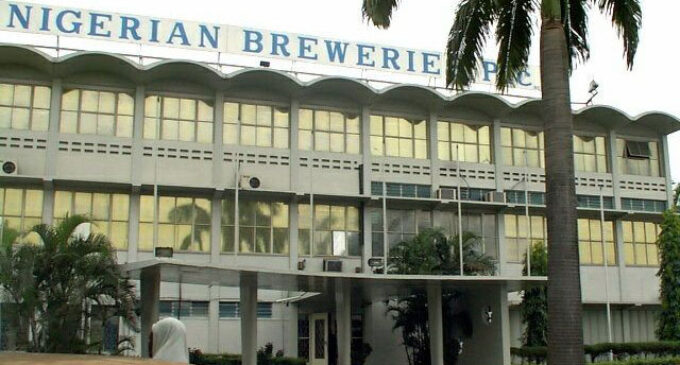
Net foreign exchange loss of N70.6 billion in the second quarter (Q2) created a net loss of almost N37 billion for Nigerian Breweries Plc in Q2 and extended the company’s loss position to N47.6 billion at half-year.
FX loss multiplied 13 times from N5.4 billion in the same quarter last year to swell an exchange loss of N14.5 billion in the first quarter (Q1) to over N85 billion at half year.
The company’s interim financial report for the half year ended June 2023 shows an otherwise improved operating performance except for the FX loss that changed the reading.
There is an upturn in net sales revenue from N14.5 billion or 10.5 percent drop in Q1 to an increase of N17.8 billion or 13 percent year-on-year in Q2 to close at over N154 billion for the quarter.
The brewing company has also addressed a major operating challenge of production cost growth while sales dropped — which was experienced in Q1. Input cost slowed down in Q2 at an increase of 7 percent to N85.7 billion, stretching out gross profit margin.
With that, gross profit rebounded from a drop of 29.7 percent in Q1 to an increase of N12.2 billion or 21.6 percent to close at N68.4 billion for Q2.
Also, operating profit that fell from N23.7 billion to less than N1.9 billion in Q1 reversed to register an outstanding growth of 118.7 percent in Q2 to close at N26.5 billion for the quarter.
The company’s management, however, could not scale the hurdle of the huge net FX loss to convert the enhanced operating results into profit.
Nigerian Breweries has faced severe operating pressures for the past four quarters (Q4) running from the third quarter (Q3) of last year. It recorded losses in the entire second half (H2) of the 2022 financial year and stretched to the first half (H1) of the current year.
The major source of the operating pressure creating the losses is FX loss. At the end of last year, net FX loss multiplied close to four times to over N26 billion.
Much bigger FX losses are rolling in this year, so far, and with a much more destabilising effect on earnings than happened in 2022.
The company’s half-year numbers are a combination of the loss of sales in Q1 and the gain in Q2. The effect is flat sales at N277.4 billion for the half year against N274 billion for the same period last year.
The slowdown in production cost in the second quarter could not, however, fully counter the rise in the first quarter — leading to an increase of 6.2 percent at half-year to N165 billion against the flat growth in sales.
Gross profit, therefore, went down by 5.4 percent to close at N112.3 billion for the half year. Dragged down by the huge drop in Q1 and despite stringent controls on operating expenses, operating profit dropped by a much wider margin of 20.8 percent to N28.4 billion at the end of June 2023.
Then came like a stroke the FX loss that jumped close to 12 times from N7.3 billion in the same period last year to N85.3 billion at half year.
Adding to that is finance cost that grew more than three and half times to N11 billion over the same period. That jerked up net finance cost nine and half times to N96.2 billion at the end of half-year trading.
The net finance cost figure gulped the operating profit and left a pre-tax loss of N67.8 billion for the six months of operations.
An income tax credit of N20.2 billion lowered after-tax loss to N47.6 billion, down from an after-tax profit of N18.7 billion in the same period last year. The company closed last year with a lower after-tax profit of N13 billion than it posted at half-year.











